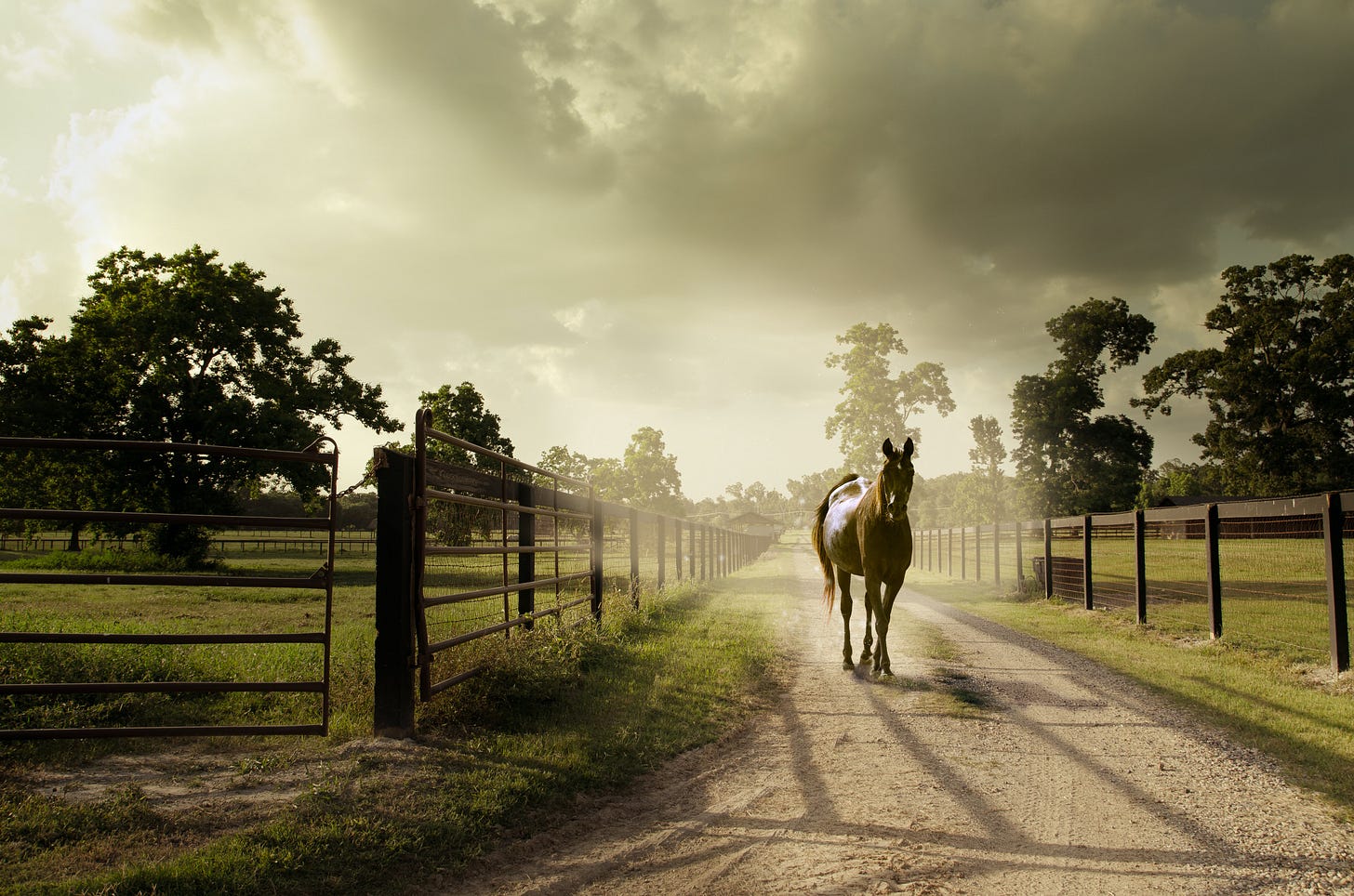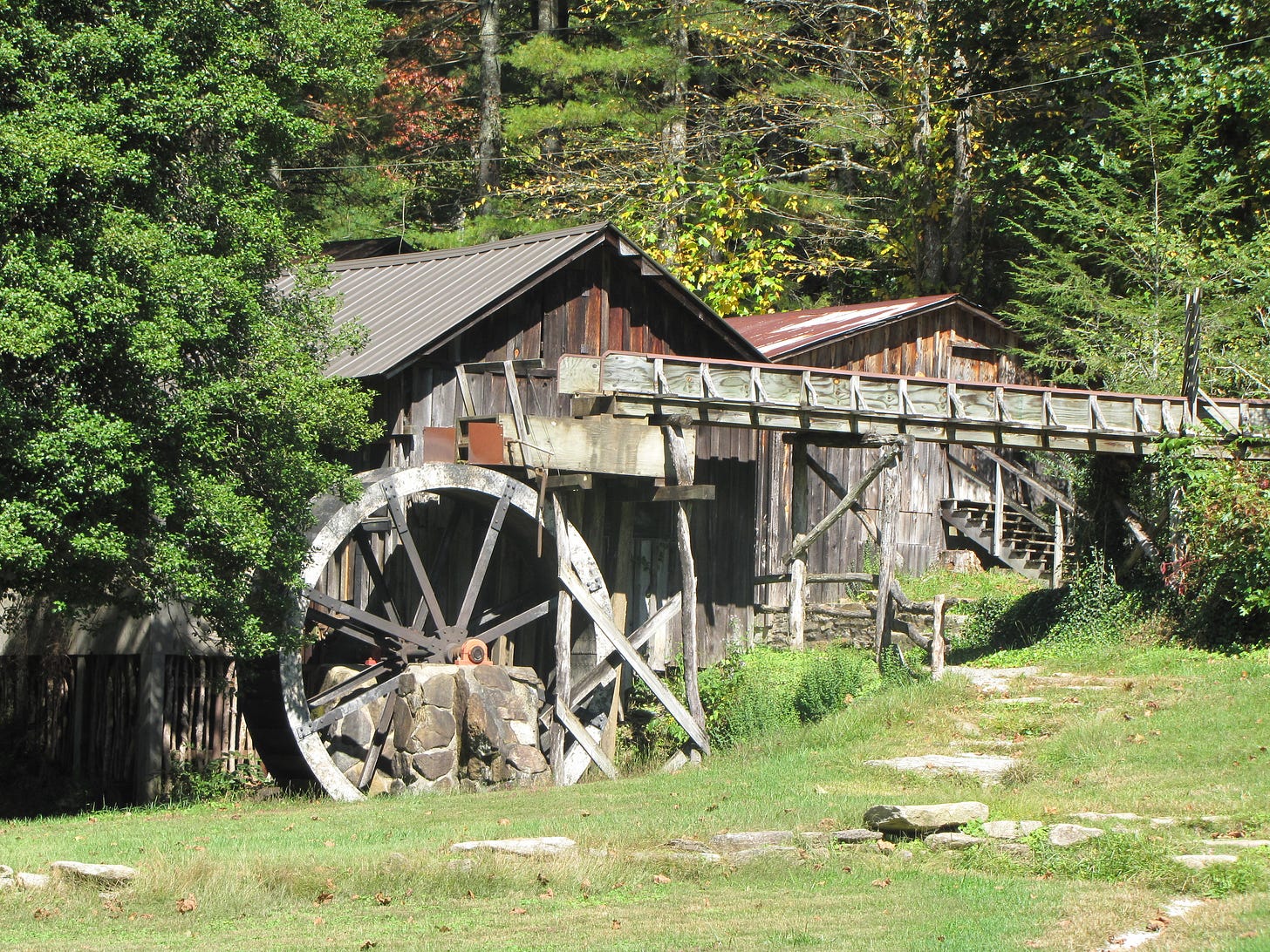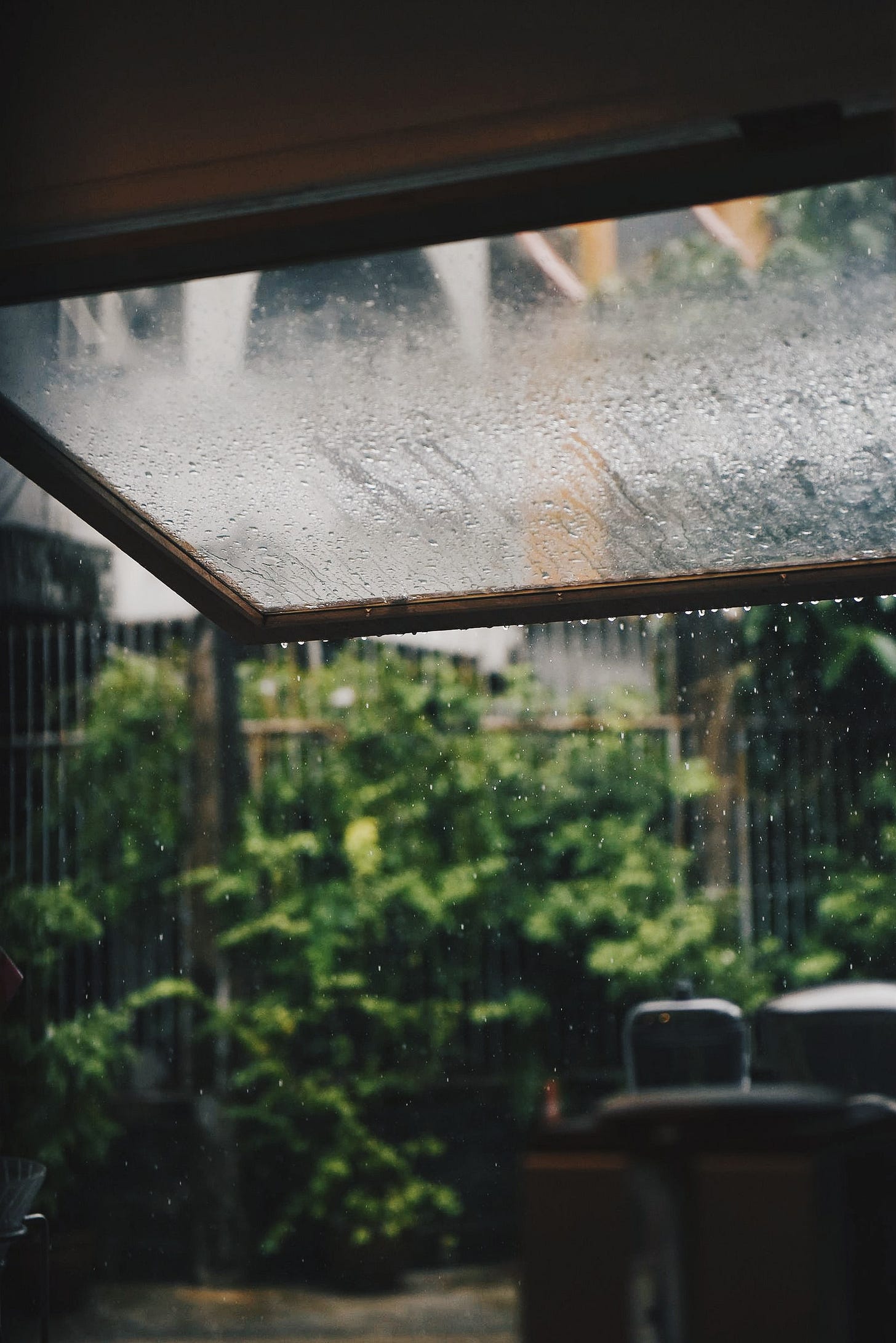The coolness of the past few mornings is a promise I look forward to each year: that the dog days have nearly ended and summer WILL pass into fall. Living in the dank armpit of August in the south, I am always a bit skeptical. We’re guaranteed a couple of psych out gorgeous days known as “false fall” before the real thing picks up in earnest, but it’s coming. Praise be.
Maybe the heat of the past few weeks has fevered my brain, but there’s a tiny tendril in me still clinging to summer. Or, more accurately, the memory of summers past and their strange, golden enchantment. I had the distinct privilege to go to an amazing farm camp as a kid, and I still think of it fondly as each summer drags its heavy hooves back to the stable. And so: a small lullaby to sing this summer to sleep alongside its passel of sun-weary sisters…
Just outside of Brevard, North Carolina, the wide French Broad River branches south into Carson Creek. The creek winds lazily through thick tangles of rhododendron and delicate mountain laurel before opening onto pastureland and forking into smaller tributaries. The largest of these flows past a tidy farm suspiciously bereft of rusting machinery. It trots alongside a gravel pathway and beneath a rough-hewn wooden sign arching overhead. The sign’s letters, routed in the uniform hand of wilderness way finding, announce the true arrival of summer to eager and anxious campers.
The stream meanders a few hundred meters more before it’s dammed and diverted to a rickety mill raceway, tumbling over the edge to drive a steel, overshot water wheel. In the millhouse perched above it, a fine dust of cornmeal coats every surface and swims through slanted sunlight as campers learn about weevils and hoecakes. The pond below is stocked so heavily with trout that boys and girls must help each other balance the wriggling weight of buckets full of fish as they carry them unsteadily to the gutting shed.
Summer days have passed alongside the camp’s gristmill in much the same way since 1935, and my several seasons there were no different. As a kid, the wheel seemed immense, a thundering behemoth. As millwheels go, it’s actually quite small. But on rainy days, unseen by the campers hunkered down in their cabins, it crashed and whirled frantically, possessed by a wildness that far outsized its buckets.
We were all accustomed to the brief afternoon thunderstorms that break the heat of southern summers; we’d dash into the lodge or onto the porch of a nearby cabin for the 20 minutes it took to wring itself out. But there was usually at least one day at camp where the rain would begin as a gentle, music-box plinking against the metal roof in the still dark before becoming a steady thrum by the time the sun rose weakly. Those days were my favorites.
It wasn’t that I didn’t enjoy the outdoors – I did. I could spend hours sorting and weaving white clover heads into a flower crown fit for a Pre-Raphaelite muse or wander deep into the woods following the erratic flight of a fritillary butterfly. From gnarled tree-root hiding spots to hordes of glittering mica flakes, magic was in no short supply in my supple, ten-year-old imagination. But my bunkmates were all lanky legs, tanned and scraped from clambering through creek beds and fencing one another with rotting branches. My pale, chubby thighs studded with bug bites struggled to keep up as the other members of my cabin scaled the mountainsides like rambunctious goats.
I had always been an odd girl out: a redheaded stepchild both literally and figuratively. Precocious and strange, I preferred the friendship of my teachers during recess and listened to The Doors and The Grateful Dead while my classmates fought over the cutest New Kid on the Block. I was among the first of my peers with divorced parents and coped by elevating myself to elementary school “elder” status, offering psychoanalysis to kids suddenly aware of a world beyond themselves on the bleachers after school. Made nervous by the uncertain territory of camp, I doubled down on caretaking – a habit I still haven’t managed to shake.
When it rained, our tired counselors let us choose how to fill the day. The frenzy of friendship bracelet braiding inevitably petered out after an hour or two as girls would start mouthing “I’m so boooored” exaggeratedly to one another, feigning elaborate deaths from ennui on their respective bunks. While I might not have been the most impressive mountaineer, I was a hell of a reader; I plunked myself cross-legged on the worn wooden floor of the cabin and read Roald Dahl aloud, plowing through chapter after chapter of James and the Giant Peach. Our ramshackle cabin was set adrift on a sea of possibility like James on his floating fruit. With the curtain of rain around us, we were hidden away from the looming world of logic and sense. We were mistresses of our peculiar domain: no longer children, not quite young women, utterly convinced that if we lashed enough gulls to us, we, too, could take flight.
Giddy with our unfettered sureness, we decided to up the ante. “Light as a Feather, Stiff as a Board” yielded little more than peals of laughter and a couple of centimeters of space between our lightest camper and the knotted pine floor. “Bloody Mary” was quickly shut down by the counselors when Jordan, the girl who still sucked her thumb, began crying at the gruesome story with her puckered thumb beside her tear-stained face like a maudlin hitchhiker.
In an effort to assuage our counselors back into complacency without abandoning our spiritualist fervor, I offered up a game that – to this day – I don’t recall if I had learned somewhere or just made up on the spot. The set up was simple enough: a girl would lie on the ground with her eyes closed, her head resting on a pillow in my lap. I would gently rub her temples, asking her to describe her favorite place, coaxing her deeper and deeper into the world of her imagining. I’d speak soothingly, sometimes brushing my fingertips back and forth across her forehead, asking questions until her replies seemed barely coherent or audible. Then, with a dramatic look to the audience horseshoed around her, I’d give her a sturdy pinch to the arm.
Silence.
“Did you feel that?” I’d ask in a quiet coo. “Feel what?” she’d mumble without fail as everyone’s eyes would widen in disbelief. Within seconds, the poor dreamer’s reverie was shattered by eleven girls squealing: “Howdidyounotfeelthat? Isawherpinchyou! Itlookedhard! Areyoulying? Youbetternotbelying. Iwannago!”
A hotly contested queue formed. The proceedings went on for what felt like hours, each girl’s surrender more suspect than the last. Even Mesmer himself couldn’t have relaxed into meditation in that cabin, and the hysterical laughter after each “session” had a manic edge to it. I had learned about the Salem witch trials in school before summer break; the weaponization of prepubescent hysteria suddenly didn’t seem so outlandish.
I still don’t know how exactly that little parlor trick works, though I’d wager it’s something akin to light hypnosis, a mental bypass that took us out of our bodies before we even understood what it meant to be in them. But at the time, it was pure sorcery. The world was rife with easy at hand enchantment.
Even now, when my mind thrashes in a deluge of to-do’s and worries far too large for an average Tuesday, I trace the gravel trails of summer camp in my mind. If I walk far enough – past the stables where they’re bridle-training a colt, beyond the lodge where the blind piano player runs her fingers gently across a Braille book, into the thick woods carpeted with the fanned leaves of bloodroot – I can find my way back to the stores of magic I stashed among the tree roots over a quarter century ago. I can conjure up the warm, sweet smell of the millhouse; cornmeal, it turns out, makes a mighty fine fairy dust. And for a little while, I’m a hundred and fifty miles and thirty years away. For a few minutes, the pressing weight of consequence tumbles away from me. For a breath, I don’t even feel it.








An immersive memory of camp, you make me want to be there, Kimberly!
Vivid images!